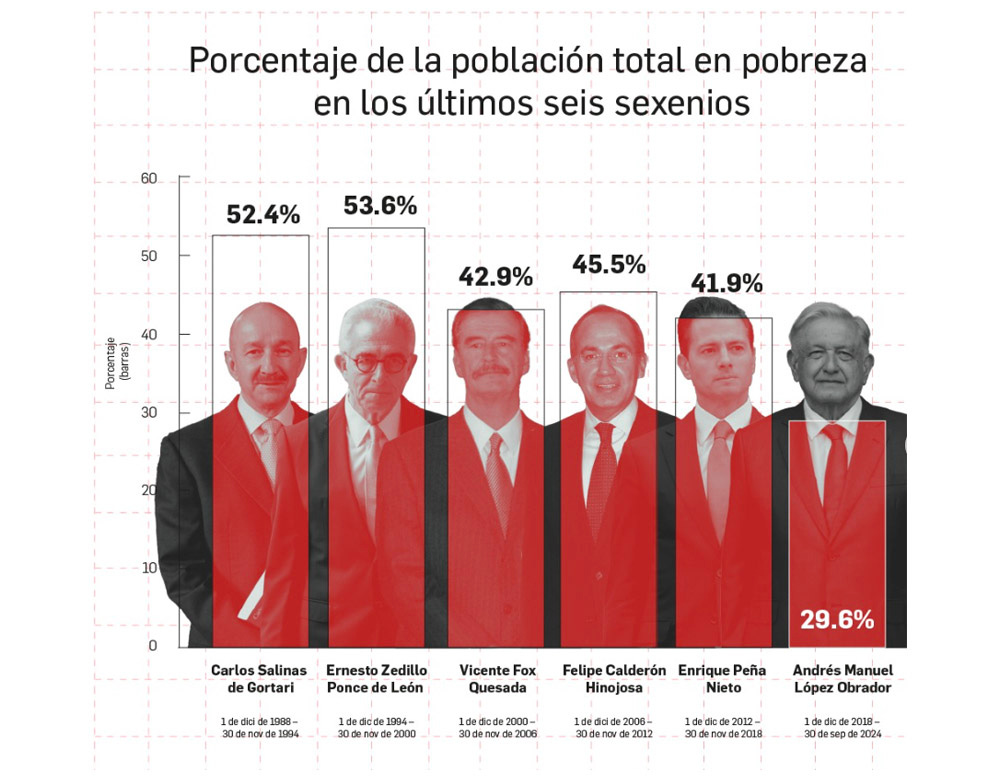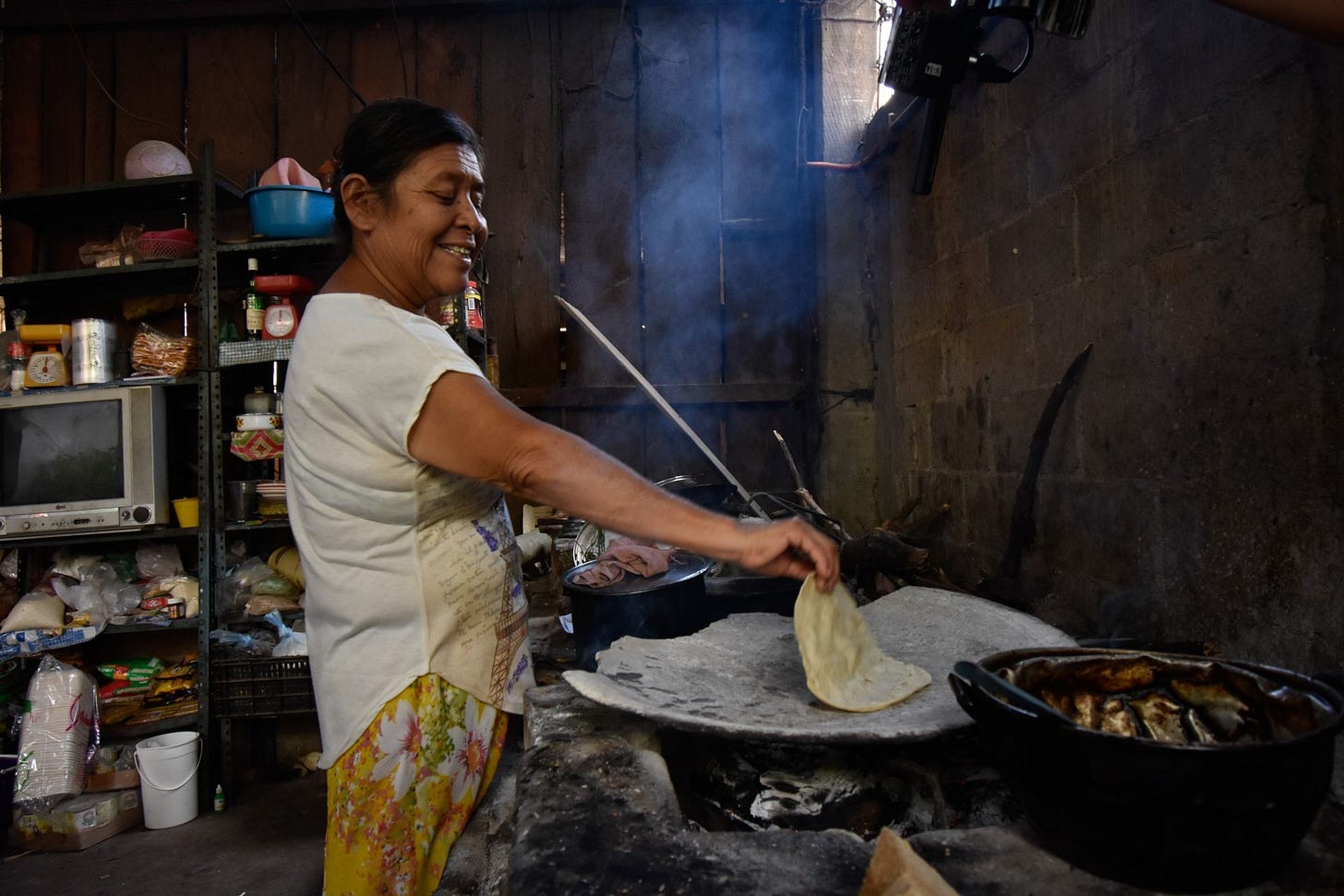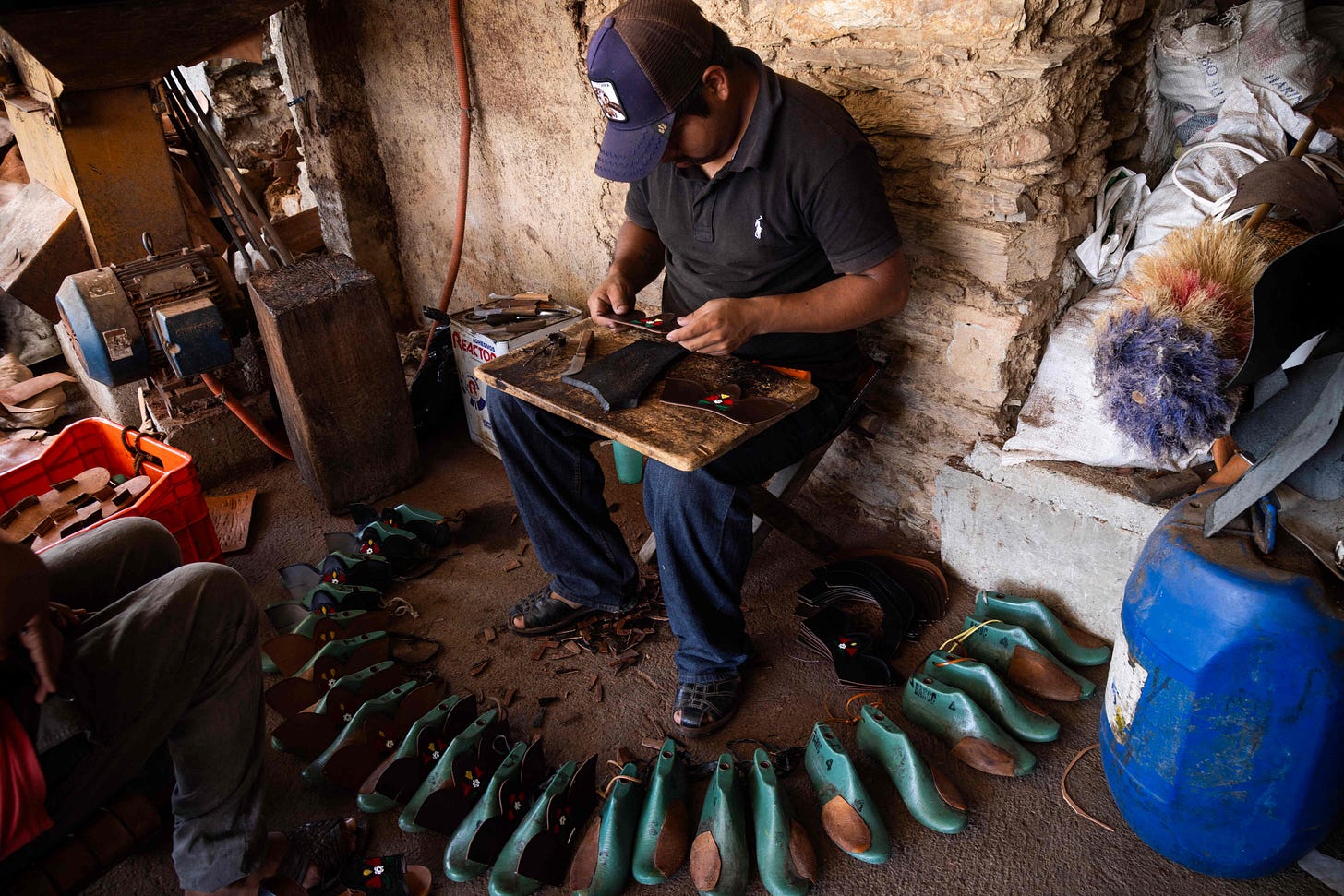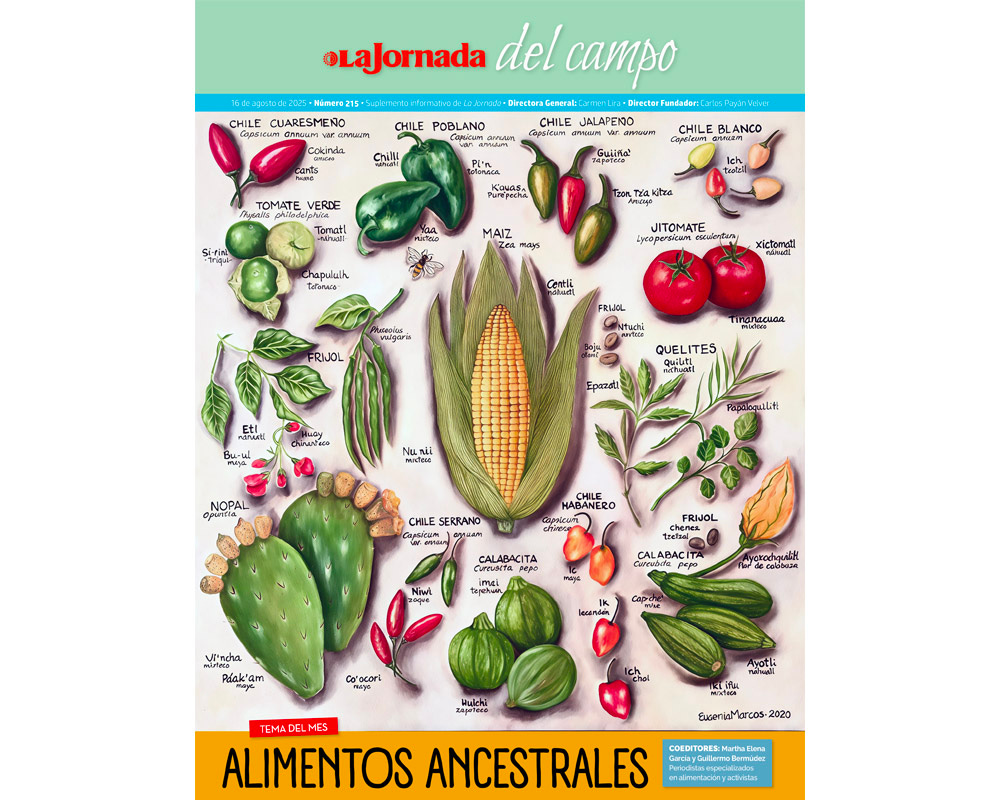Reducing Poverty: Achievements and Challenges
Also in this edition: Ancestral Foods. Rebellious Women. U.S. Military in the Caribbean. New Exhibition of Leopoldo Méndez.
Lea La Jornada Internacional en español aquí.
Mexico Achieves Greatest Poverty Reduction in Five Presidential Terms
Poverty in Mexico has steadily decreased since 2018, but structural inequality continues to grow. The reduction in poverty in the last sexenio is an achievement without precedent and, at the international level, is only comparable to China’s late-20th-century policies and Brazil’s social programs of the early 2000s.
Mexico achieved in the last decade the largest drop in relative poverty among all OECD countries, an accomplishment that has also been recognized by the UN and the World Bank.
"Long live the Fourth Transformation!" celebrated President Claudia Sheinbaum while presenting these figures. "Under the leadership of President López Obrador and the start of the Fourth Transformation, poverty dropped from 51.9 million to 38.5 million people. Mexican humanism, which applies moral economics, works. We reaffirm our fundamental principle: for the good of all, the poor come first.”

However, these statistics don’t tell the whole story. The richest 1% in Mexico hoards 35% of the country’s total income. While the average population saw an income increase between 2018 and 2024, the poorest 10% only gained an additional 16 pesos per day, while the wealthiest 1% increased theirs by more than 7,000 pesos daily.
And despite the extraordinary progress made in the last six-year term, poverty levels in the world’s 12th-largest economy remain very high—especially among Indigenous communities, informal sector workers, and women. Moreover, half of all children under five live in poverty, according to an independent report.
Two out of every three speakers of Indigenous languages live in poverty, according to official data. In 2024, the number of people living in multidimensional poverty who speak an Indigenous language was 5.3 million—unchanged from 2018. The government still faces serious challenges in states like Oaxaca, Guerrero, and Chiapas, where half the population lacks basic services at home. That’s 66.3% of people—more than twice the national average of 29.6% in 2024.
A piece of good socioeconomic news is that the percentage of people who are employed but still live in poverty has dropped to its lowest level in two decades. Still, there is a need to create conditions to formalize the labor market more effectively—currently, six out of ten businesses operate informally, and that number is growing.
That’s why, writes economist Rolando Cordera Campos in La Jornada, we need a clearer understanding of the conditions that led to this reduction. “The drop in income poverty shouldn't be used to cover up our lack of economic growth and the fiscal tragedy of the state—unshakable pillars of our distorted social landscape. A reality marked by inequality, scarcity, and historic vulnerabilities; an education system that lives and reproduces those tragedies it once measured,” he writes.
For that reason, the reduction in poverty is both an achievement and a challenge in one of the world’s largest and richest economies, writes José Murat. “It’s no accident or fluke—it’s the result of specific public policies. Notably, the significant increase in the real minimum wage (not just nominal), and the diversity and effectiveness of social policies, including programs of direct transfers to the people without bureaucracy, with a focus on the lowest two income deciles, which form the base of the pyramid.”
The Quote:
There are three kinds of lies: lies, damned lies, and statistics.
-Mark Twain
In Case You Missed It
◻️ Ancestral Foods. European colonizers failed to realize that the most valuable source of continuous wealth lay in Mesoamerican foods. For three centuries, they took corn, beans, squash, chiles, tomatoes, turkeys, cacao, vanilla, papaya, and avocados back to their home countries, enriching their cuisines. Thus, after being conquered, the foods of Indigenous peoples conquered the palates and kitchens of other nations, transforming the global food landscape, write Martha Elena García and Guillermo Bermúdez in the latest edition of La Jornada del Campo.
◻️ The Left and Its Electoral Defeats in the Americas. The left is heading toward its worst electoral performance in decades in Bolivia. In Chile, elections aren't scheduled until December, but a far-right candidate is leading the race. Why are the left and progressives losing elections?, asks former Bolivian Vice President Álvaro García Linera. Looking at the histories of Brazil, Argentina, and Bolivia itself, he concludes that “leftist governments, especially those in their second or third term, or trying to return to power, are anchored in past achievements, clinging to them sentimentally… and lack fresh proposals for transformation that inspire collective hope for a world yet to be won.”
◻️ Rebel Women: Two Stories. An exhibition honors the anarchist women of the Mexican Revolution who played a crucial role in building an emancipatory project. Meanwhile, Liliana García Sánchez reminds us that during the second half of the 19th century, from 1848 to 1901, Mayan rebels established an autonomous society governed by a woman: María Uicab.
◻️ Mexico Faces Trump’s Campaign of War. The Mexican president denied that Donald Trump’s pressure had any influence on the decision to send 26 cartel members to the U.S. Days later, she refuted the DEA’s announcement of a new binational initiative. For Julio Hernández López, these events underscore the institutional weakness of the Mexican state in the face of Trump’s virtual war campaign against it.
◻️ U.S. Military in the Caribbean. Washington is deploying air and naval forces to the southern Caribbean Sea, allegedly to fight drug cartels—but with a clear target: the Venezuelan government. Amid rising geopolitical tensions between Venezuela and the United States, President Sheinbaum called for non-intervention, self-determination of peoples, and peaceful resolution of conflicts. In that same Caribbean, writes Rosa Miriam Elizalde, people are celebrating the 100th birthday of the Cuban leader who defied Washington for over half a century.
◻️ Resistance and Rebellion. In Chiapas, a gathering organized by the Zapatista Army of National Liberation (EZLN) with participants from 37 countries, concluded with commitments to build new forms of organization, ensure greater participation of women, strengthen dialogue between communities, and continue resisting capitalism’s assaults, including threats from organized crime. The group also condemned the “capitalist system’s genocide against Palestine.” In Mexico City, human rights collectives installed an anti-monument for Palestine outside the Ministry of Foreign Affairs. It’s part of the “Route of Memory,” which runs along Paseo de la Reforma, Alameda, and ends at the Zócalo, commemorating ongoing struggles like Ayotzinapa and the Pasta de Conchos miners. ▶️ VIDEO
◻️ Leopoldo Méndez: Printmaking as Political Action. A new exhibition at the National Print Museum aims to reintroduce one of the most overlooked figures in Mexican art. “We always talk about the big three muralists, but this country is more than just painting—it’s printmaking, cinema, and art in service of social causes,” says one curator. The show also highlights Méndez’s collaboration with cinematographer Gabriel Figueroa.
🎥 What We’re Watching
Palabras Cruzadas: An interview with Hermann Bellinghausen and his Cuento de la Vida. A conversation about writing and storytelling.








